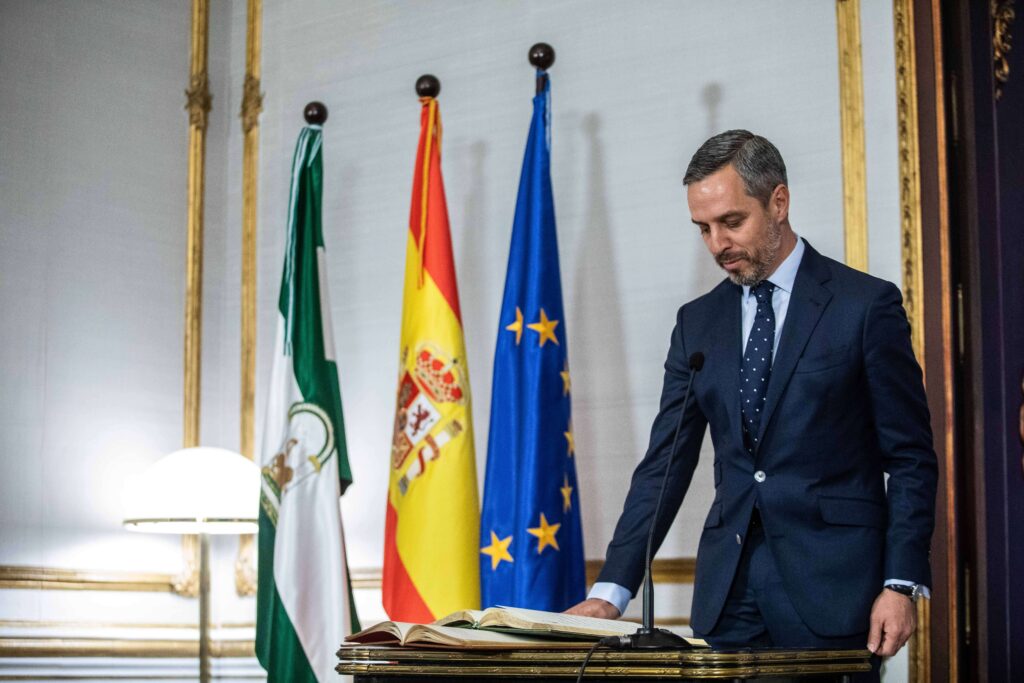What can the startup ecosystem and VCs expect from the next Spanish government? The reality is, not much.
Maybe it’s too much to ask for something similar to Emmanuel Macron’s plan in France to make the country an artificial intelligence (AI) champion by investing €500 million in French startups.
Days before last Sunday’s elections, Adigital (the Spanish Association of the Digital Economy) and EsTech (the Spanish Association of Scale-up and Unicorns), emphasized the necessity of a State Pact to foster innovation and entrepreneurship in a public statement.
This document highlights the significant impact of the digital economy on Spain’s GDP, which stood at 22.6% in 2022.
By collectively working towards a common goal, the GDP’s share from the digital economy could potentially reach 40% by 2030.
Such figures present an excellent opportunity for the future government to achieve a 4% growth in GDP over the next four years, driven by an innovative economic model, according to Adigital and EsTech.
The Government resulting from the next general elections, said the document, has the
opportunity to increase the competitiveness and opportunities of Spain’s ecosystem, thanks to technology, innovation and entrepreneurship.
Two parties pitching
Also a few days before the Spanish vote in the general elections, Victoria Majadas, President of BIGBAN Inversores Privados, asked some questions to Pedro Casares, Secretary of Economic Policy and Digital Transformation of the PSOE, and Juan Bravo, Deputy Secretary of Economy of the PP political parties.
Her aim was to get an idea about the plans of two of the most important political parties in the country (which, no surprise, they ended up getting most of the votes in the elections) regarding startups, technology and innovation. How will they foster investments in the tech sector and how will they provide an ideal legal framework for more entrepreneurs and investors working in the Spanish ecosystem?
On the topic of taxes to motivate investors to bet on seed phase and early-stage startups, Casares, put emphasis on the recently approved “Startup Law,” that was promoted by the PSOE. This law, he added, brings about several key changes to incentivize investment in startups.

“Notably, the deduction for investment in startups is now increased from 30% to 50% for both IRPF and IRNR, aiming to encourage more investments in these companies. The law also includes a reduction in the tax rate on Corporation Tax and Non-Resident Income Tax, lowering it from the previous 25% to a new rate of 15%. This reduction is intended to support startups and stimulate their growth,” said Casares.
The Secretary of Economic Policy and Digital Transformation of the PSOE also mentioned that the law improves the tax treatment of stock options by raising the existing exemption from 12,000 to 50,000 euros per year.
At the same time, he added, the personal income tax deduction for subscribing to shares or participation in startups, has been enhanced from 60,000 to 100,000 euros per year.
Bravo, from PP, was very clear that Spain can and should be a benchmark country when it comes to investing in startups, which generates confidence and supports entrepreneurs, businessmen and investors.
“The startup law, despite the time that the government has set aside for its development and being a first step, has fallen short and has not been ambitious enough. It is necessary to improve the current scheme of tax measures and especially their applicability conditions, for example, when the investor makes his contribution to an investment vehicle and not to the startup itself directly.”
Bravo said that in order to do this, they will modify the personal income tax regulation and the Corporate Tax Law so that both investors and the investment vehicles themselves can take 100% advantage of all tax incentives and deductions.
It seems that PSOE relies heavily on the “Startup Law” for all of its plans, while PP focuses solely on the fact that the “Startup Law” has not been enough.
Another topic that was mentioned was the necessity to improve governance in Spain’s entrepreneurial and investment ecosystem.
The Socialist Party said that they will reinforce their commitment to continue with Spanish entrepreneurship through the Spain Entrepreneurial Nation Strategy to strengthen its ecosystem. Although the High Commissioner’s office was shut down in February.
Bravo from PP said they need more organization to promote and assist the entrepreneurial ecosystem, transversal to all the ministries that promote and coordinate a comprehensive entrepreneurial policy, which ensures the optimization, effectiveness and impact of resources, with a global vision and truly coordinated action with the communities.”
Asked about the importance of divestment and how to support this for early-stage investors, Casares went back to the benefits of the Startup Law, while Bravo assured that they are evaluating different proposals like launching public guarantees so that partners can access financing to repurchase the shares from the BAs; allow public loans to startups to contemplate a partial repurchase option to investors or even establish tax advantages (L.I.S.) in the amount of profits that startups can use to repurchase shares from their investing partners.

Investors speak up
In a recent piece from Expansion, several investors spoke about what they would ask of the next government.
Notably, Marek Fodor, a partner at 4Founders Capital, strongly supported the idea of significantly simplifying tax regulations.
According to him, what is required is not more incentives but rather more straightforward and clear tax rules.
Currently, entrepreneurs and investors are compelled to rely on tax advisors due to the complex nature of the existing tax system.
“I have an unattainable dream, which is to be able to do the tax return myself. If there are tax advantages, you have to have an army of experts around you to be able to use them,” he said.
Also in the same piece, Carlos Blanco, the founder of Encomenda, Conector, and Nuclio, said that he believed that the foremost task for the new government should be to recognize and elevate the status of entrepreneurs.
He pointed out that in Spain, there still exists significant social pressure directed at successful entrepreneurs, which needs to change.
Blanco also emphasized the necessity of resolving the issue of legal uncertainty stemming from frequent regulatory and tax changes that have taken place in recent years.
Furthermore, Blanco expresses his disappointment regarding the prevailing tendency in Spain to support traditional lobbies or unions over digital advancements when conflicts arise between the two.
This bias often hinders the progress and evolution of various sectors, and he suggests that the government should strive for a more balanced and progressive approach that encourages digital transformation and benefits all stakeholders.
Andrés Dancausa, general partner of TheVentureCity and member of the board of SpainCap, also mentioned in the Expansión article that “there is still room for improvement to retain many entrepreneurs who continue to look to other countries to launch or scale their projects. A law that affects more companies with high growth potential would be more effective in keeping talent in Spain. In the current regulation, the limitation is established by the criterion that attributes to start-ups a maximum turnover of 10 million euros.”
He concluded that “a Spanish startup still has a less attractive tax regime for giving stock options to its employees than a US company,” so it will be more difficult to attract talent and be competitive.
While European venture dealmaking continues in decline, the next government should put even more emphasis on delivering good policies for the ecosystem to thrive as much as possible.
Although the country still has some weeks ahead before a new government is formed — that is if new elections are not called because political parties are unable to form a coalition for a ruling government — entrepreneurs will face some important challenges ahead in the next few years.









